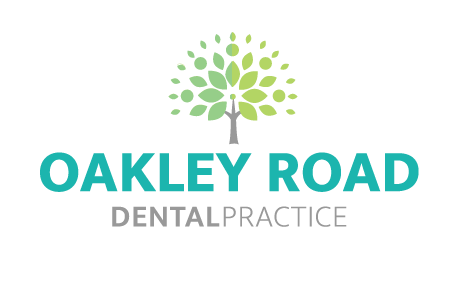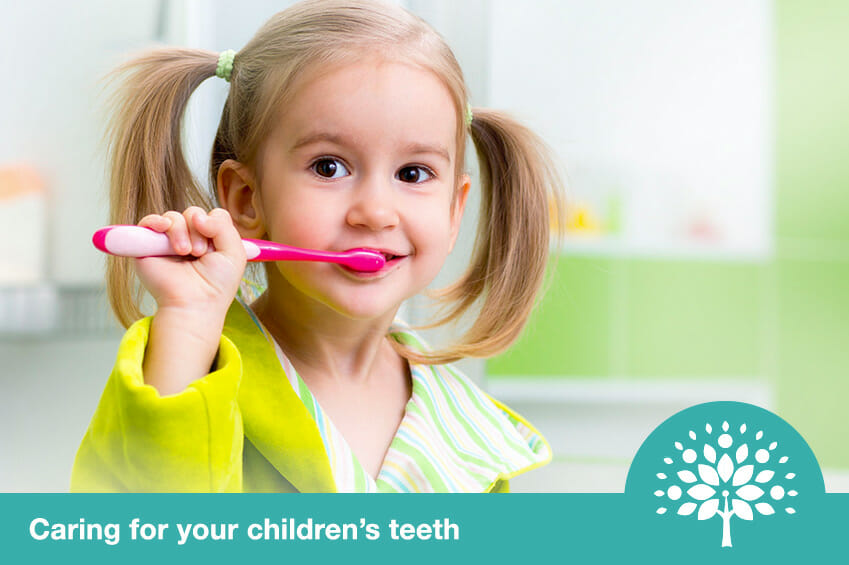It’s never too early to start a good oral health routine
The daily battles that commence morning and night; the constant bribery; the singing of songs…getting your kids to brush their teeth can often be challenging. But let us reassure you, that caring for your children’s teeth now will be well worth it in the long run.
Children’s teeth are prone to decay, just like adult’s teeth, so it is essential that your child is taught the importance of good oral hygiene and a healthy diet from an early age – even if they still have their milk teeth.
See our Children’s dentistry in Southampton page.
Brushing up on teeth cleaning skills
Mornings are manic when time is of the essence and you are juggling everything around the school or nursery run. But there are some things we just shouldn’t rush. On average, we brush our teeth for just 45 to 70 seconds a time, which is well under the recommendation of 2-3 minutes.
Failure to make sure that our kids are looking after their teeth is having a major implication on their dental hygiene, with one in three children starting school with tooth decay! But it isn’t just poor brushing that’s to blame, a combination of readily available sugary snacks and drinks and a lack of preventative care has led to an increase in the number of children having teeth extractions.
Shockingly teeth decay in children is now 5 times more likely than asthma and 7 times more common than hay fever. However, with a good brushing routine, regular dental check-ups and a balanced diet, you can ensure that your child has a healthy mouth today, tomorrow and for the future.
The importance of check-ups for children
It is not uncommon for parents to hold off taking their children to see the dentist until their adult teeth start to come through. However, baby teeth have an important role to play and should not be dismissed, as they help with a child’s physical, emotional, and social development.
We strongly recommend that from the age of 3 your child has six monthly check-ups, as tooth decay with children can happen quickly and catch everyone unaware.
Most children start to receive regular visits from the tooth fairy around the age of 6 years when their permanent teeth start to push through from below. Children tend to lose their teeth in the order they arrived, with their upper and lower front teeth often falling out first – enabling them to perfect the art of whistling.
Last year, according to an NHS survey, only 58.6% of children saw a dentist. At Oakley Road Dental Practice, we like to see patients of all ages and the younger they are the more familiar they can get with our comfortable dental surroundings.
Denplan for Children
From wobbly teeth, right through to misalignment, your children’s oral health can change rapidly as they grow. At Oakley Road Dental Practice, we place an emphasis on preventative care and now offer Denplan for Children.
This monthly plan not only helps to protect your children’s teeth with regular check-ups, dental x-rays and hygiene treatments but offers educational care to encourage a healthy smile for life.
The category your child is placed in is based on the condition of their oral health and the amount of treatment that may be required. Denplan for Children allows you to budget for your family treatments and helps our dentists to spot and avoid problems before they occur.
For more information on Denplan for Children, please call us on 02380 771450.
Oral advice and preventative care for parents
Below we have put together some simple steps that you and your family can take every day to protect and improve your child’s dental health.
- Brush two minutes, twice a day: make sure that your child brushes their teeth for a full two minutes last thing at night and at least one other time during the day. Either use an app or a timer, sing a song or tick it off on a reward chart, but make sure that you supervise, watch and assist at all times.
- For more information on the correct way to brush your teeth, our dental hygienist Michelle has created a YouTube video which you can view by clicking here.
- Do not brush straight after eating: wait at least an hour after eating and drinking before encouraging your child to brush their teeth. This will allow their saliva time to neutralize the acids in their mouth and for their tooth enamel to reharden.
- No need to rinse: often we encourage children to rinse their mouths after they’ve brushed their teeth, especially if they don’t like the minty taste of toothpaste. However, rinsing actually washes away the protective fluoride found in toothpaste which is meant to coat their teeth and offer continuous protection against decay.
- Use age-appropriate fluoride toothpaste: ensure that your child’s toothpaste contains the recommended level of fluoride for their age group – this can be found on the side of the tube. Toothpastes containing 1350 – 1500 parts per million fluoride (ppm) are the most effective at helping to prevent tooth decay.
- Children under the age of three years old should use a smear of toothpaste containing no less than 1000 ppm. Children between three and six years old should use a pea-sized amount of toothpaste containing more than 1000 ppm fluoride, whilst children aged 7 and over can have fluoride toothpaste containing between 1,350ppm and 1,500ppm.
- Replace brushes regularly: when choosing a toothbrush for your child, choose a small headed toothbrush with medium texture bristles. Use either a manual or powered (rotation action), but make sure that you replace the toothbrush heads as soon as they become worn.
- Promote healthy eating: sugar consumption is the major cause of tooth decay in children and whilst we all like a piece of chocolate, a bag of sweets or a slice of cake; they should be considered a treat and not an everyday occurrence.
Try and avoid giving your child sugary foods and drinks just before bedtime and only give snacks such as dried fruit and juice at mealtimes. Remember that smoothies and fruit juice may count towards your child’s 5 a day, but even unsweetened fruit juice is sugary, so should be monitored.
Encourage your child to eat a balanced diet that is rich in fruit, vegetables and starchy foods, making sure that you include some proteins, milk and dairy products. And, where possible, always ask for sugar-free medicines.
Fun facts about teeth
Did you know…
…that in France and Spain they do not have a tooth fairy, but a small mouse who goes around collecting all the children’s baby teeth?
…that rodents, such as hamsters, have teeth that continuously grow, and this is why they like to gnaw?
…that Turkish children throw their fallen-out teeth onto the roofs of their houses and make a wish?
…that tooth enamel is the hardest substance found in the human body?
…that if you are righthanded, you tend to chew your food on your right side and vice versa?
…that the Blue Whale is the largest mammal on earth, but can only eat tiny shrimps because it has no teeth?

Book your child a check-up today
We know that visiting the dentist can be nerve-wracking, especially for children, but our friendly team of dentists and dental staff at Oakley Road are here to make it fun.
We offer family appointments so that you can all be seen at once and can provide a host of different payment plans to make life easier for you when check-ups are due. So, to make an appointment get in touch today by booking online or calling 023 8077 1450.

